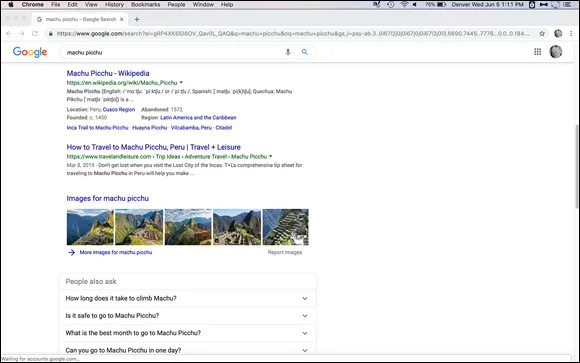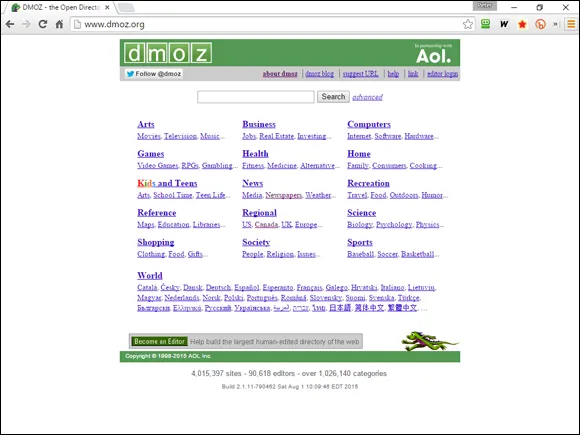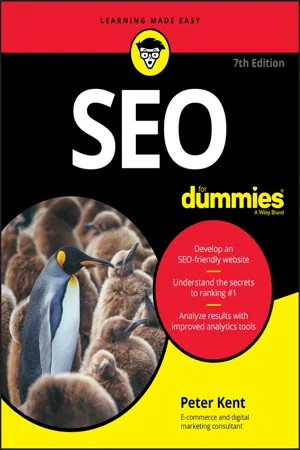SEO For Dummies
About this book
Up relevance scores, improve page speed, optimize voice search questions, and more!
Search Engine Optimization For Dummies shows website owners, developers, and search engine optimizers (SEOs) how to create a website that ranks at the top of search engines and has high-volume traffic, while answering the essential question of "how do I get people to visit my site?"
By understanding search engine basics (what are they, which ones are important, how to get started), building a search engine-friendly site, registering your site with directories and indexes, using analysis tools to track results and link popularity to boost rankings, and advertising your site by using pay-per-click options, you can use the tricks of SEO masters to drive traffic to your site. You'll also discover how to write effective content, use social media to boost your profile, and manage your platform and reputation to positively impact your search engine rankings.
- Develop a search strategy and use new SERP features
- Maximize the effects of personalized search
- Analyze results with improved analytics tools
- Optimize voice search strategies
There's no time like the present to create a website that ranks at the top of search engines and drives traffic to your site with these tips, tricks, and secrets.
Tools to learn more effectively

Saving Books

Keyword Search

Annotating Text

Listen to it instead
Information
Getting Started with SEO
Surveying the Search Engine Landscape





Investigating Search Engines and Directories
www.aol.com). One may be forgiven for thinking that AOL.com is a search engine; after all, it has a big search box right at the top, and if you enter a phrase and press Enter, or click a colored SEARCH button, you get search results.Search sites, indexes, and engines
- Search site: A website where you can search for information on the web.
- Search engine: A system that collects pages from the web, saves them in a massive database, indexes the information, and provides a mechanism for people to search through the data.
- Search index: The index containing all the information that the engine collected and searches.
- Search directory: A system that contains some basic information about websites, rather than about collected and indexed web pages.
Search directories

http://dir.yahoo.com) and the Open Directory Project, affectionately known as DMOZ (pronounced “dee-moz”) due to its original name — Directory Mozilla — and its domain name, www.dmoz.org; see Figure 1-2; the Open Directory Project was actually a volunteer-managed directory owned by AOL. (You can see an archived version at https://dmoz-odp.org/ if you’re interested.) Google used to have a directory, based on DMOZ data, at http://dir.google.com, but that’s long gone.
Table of contents
- Cover
- Table of Contents
- Introduction
- Part 1: Getting Started with SEO
- Part 2: Building Search Engine-Friendly Sites
- Part 3: Adding Your Site to the Indexes and Directories
- Part 4: After You've Submitted Your Site
- Part 5: The Part of Tens
- Index
- About the Author
- Advertisement Page
- Connect with Dummies
- End User License Agreement
Frequently asked questions
- Essential is ideal for learners and professionals who enjoy exploring a wide range of subjects. Access the Essential Library with 800,000+ trusted titles and best-sellers across business, personal growth, and the humanities. Includes unlimited reading time and Standard Read Aloud voice.
- Complete: Perfect for advanced learners and researchers needing full, unrestricted access. Unlock 1.4M+ books across hundreds of subjects, including academic and specialized titles. The Complete Plan also includes advanced features like Premium Read Aloud and Research Assistant.
Please note we cannot support devices running on iOS 13 and Android 7 or earlier. Learn more about using the app

